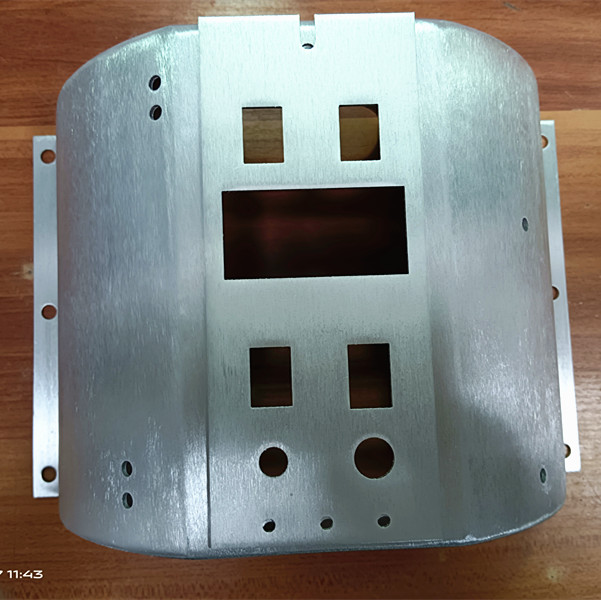
How to Avoid Sheet Metal Welding Defects?
-
by Jiatong
- 586
Avoiding defects in sheet metal welding involves careful preparation, appropriate technique, and thorough inspection. Here are some strategies to minimize welding defects:
1. Proper Material Selection
Quality of Material: Use high-quality sheet metal with minimal impurities.
Appropriate Thickness: Ensure the sheet metal thickness is suitable for the welding process and application.
2. Surface Preparation
Clean Surface: Remove contaminants such as oil, grease, rust, and dirt from the welding area.
Edge Preparation: Properly align and prepare the edges to be welded.
3. Welding Technique
Correct Welding Process: Choose the appropriate welding process (e.g., MIG, TIG, spot welding) for the material and application.
Proper Heat Control: Maintain appropriate heat input to avoid warping or burning through the sheet metal.
Adequate Shielding Gas: Use the correct type and flow rate of shielding gas to protect the weld pool from atmospheric contamination.
4. Welding Parameters
Correct Amperage and Voltage: Set the welding machine to the correct amperage and voltage settings for the material thickness and type.
Travel Speed: Maintain a consistent travel speed to ensure even weld penetration and avoid defects like undercutting or excessive spatter.
5. Joint Design
Suitable Joint Design: Use appropriate joint designs (e.g., lap, butt, corner joints) to ensure strong welds and minimize stress concentrations.
Proper Fit-Up: Ensure tight fit-up of the joints to prevent gaps that can cause defects like lack of fusion or porosity.
6. Filler Material
Matching Filler Material: Use filler material that matches or is compatible with the base metal to avoid issues like cracking or poor weld integrity.
Proper Storage: Store filler materials in a dry, clean environment to prevent contamination.
7. Equipment Maintenance
Regular Maintenance: Keep welding equipment well-maintained and calibrated to ensure consistent performance.
Check Consumables: Regularly inspect and replace consumables like contact tips, nozzles, and liners.
8. Operator Skill
Training and Certification: Ensure welders are properly trained and certified for the specific welding process and material.
Experience: Skilled welders with experience in sheet metal welding are less likely to produce defects.
9. Inspection and Testing
Visual Inspection: Regularly inspect welds visually for common defects like cracks, porosity, and undercuts.
Nondestructive Testing: Use techniques like ultrasonic testing, radiographic testing, or dye penetrant testing to detect subsurface defects.
Destructive Testing: Occasionally perform destructive testing (e.g., bend tests, tensile tests) to verify weld quality and strength.
10. Environmental Control
Control Environment: Perform welding in a controlled environment to minimize the effects of wind, humidity, and temperature variations.
Ventilation: Ensure proper ventilation to avoid contamination of the weld area and protect the welder’s health.
Implementing these strategies can significantly reduce the occurrence of welding defects in sheet metal, leading to stronger and more reliable welds.
china sheet metal fabrication manufacturers
sheet metal fabrication company china
china sheet metal fabrication companies
china sheet metal forming manufacturers
china sheet metal fabrication parts factory
china sheet metal fabrication parts manufacturer
china sheet metal fabrication factory
sheet metal parts manufacturing china
china metal enclosure manufacturers
china sheet metal fabrication supplier
china sheet metal fabrication services
china precision sheet metal fabricators
china custom sheet metal parts
china aluminum sheet metal fabrication manufacturers
china sheet metal parts company
china precision sheet metal manufacturer
china sheet metal enclosure fabrication
china sheet metal parts manufacturers
china metal stamping parts manufacturer
china sheet metal manufacturing manufacturers
china aluminium sheet metal fabrication supplier
Avoiding defects in sheet metal welding involves careful preparation, appropriate technique, and thorough inspection. Here are some strategies to minimize welding defects: 1. Proper Material Selection Quality of Material: Use high-quality sheet metal with minimal impurities. Appropriate Thickness: Ensure the sheet metal thickness is suitable for the welding process and application. 2. Surface Preparation Clean Surface: Remove contaminants…
Avoiding defects in sheet metal welding involves careful preparation, appropriate technique, and thorough inspection. Here are some strategies to minimize welding defects: 1. Proper Material Selection Quality of Material: Use high-quality sheet metal with minimal impurities. Appropriate Thickness: Ensure the sheet metal thickness is suitable for the welding process and application. 2. Surface Preparation Clean Surface: Remove contaminants…